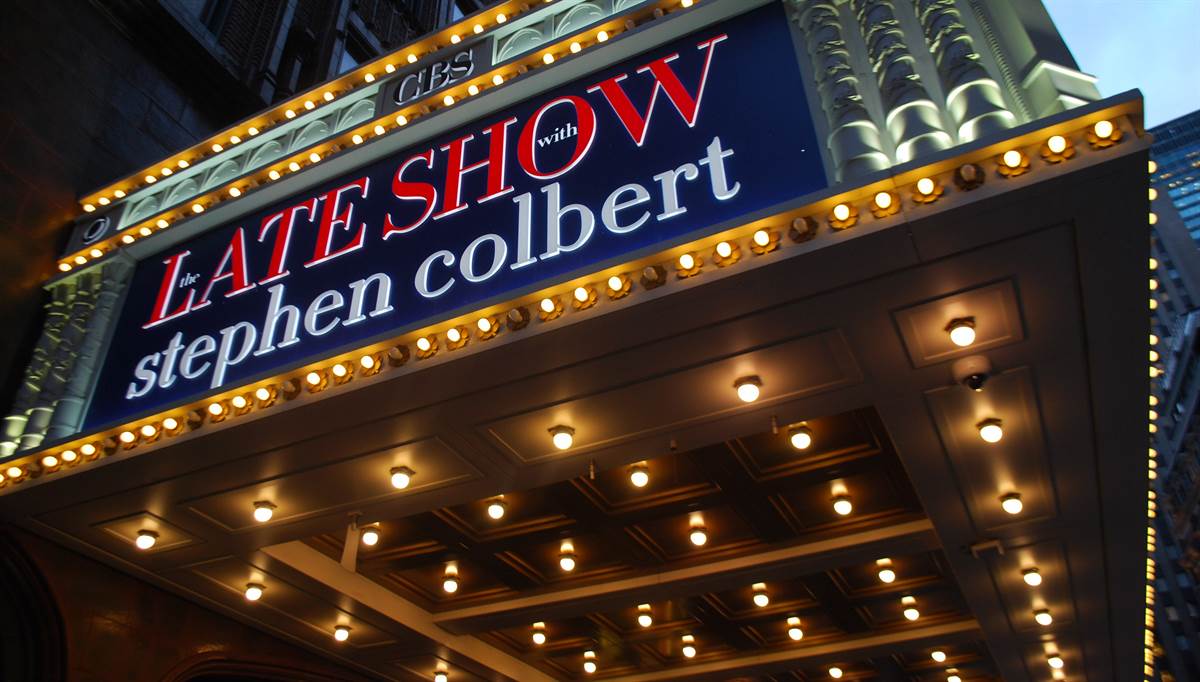
On a Thursday night taping of The Late Show, Stephen Colbert took the stage with visible strain, struggling to deliver the words that few expected to hear: “The Late Show” was being canceled, and with it, CBS was shuttering its long-standing 11:30 p.m. late-night franchise. It was a moment that left his audience stunned.
The mood in the studio quickly turned from surprise to dismay. As Colbert made the announcement, boos erupted from the crowd. Among them sat his wife, Evie Colbert, visibly moved by the revelation. Colbert had been informed just the day before and, in a gesture of solidarity, shared the news with his staff prior to filming.
For the roughly 200 employees who have brought The Late Show to life for nearly a decade, the cancellation felt like a gut punch. One insider described the reaction among the crew as
“devastated across the board… The Late Show happens to be a very close-knit staff, more so than a lot of other shows, and there's not an abundance of jobs out there.”
Just two months earlier, George Cheeks, Co-CEO of Paramount Global and President and CEO of CBS, was expressing his confidence in CBS's position in the late-night space, saying, “I love our hand, we have the number one person at 11:30 p.m. for the last nine years.” He did add, however, that “It is a challenge from an ad-sales perspective.”
Now, that challenge has claimed its most-watched show. Despite leading the late-night ratings race—averaging 2.42 million viewers between April and June 2025, The Late Show has been hemorrhaging money. Production is estimated to cost just under $75 million annually, not including Colbert's salary, reportedly in the mid-teen millions. CBS allegedly approached Colbert earlier this season requesting a pay cut, with one source summarizing the conversation as, “Poverty was pled there.”
Despite dominating in total viewers, The Late Show lagged in coveted younger demographics and digital engagement. While Colbert scored 219,000 viewers in the 18‑49 demo, ABC's Jimmy Kimmel Live! edged him out with 220,000. And in the online space, Colbert's 9.96 million YouTube subscribers pale in comparison to Kimmel's 20.7 million and The Tonight Show's staggering 32.7 million.
The late night industry has already been weathering multiple blows. The Tonight Show was recently trimmed to four nights a week, Late Night with Seth Meyers cut its live band and doubled up tapings to reduce costs, and CBS previously eliminated its 12:30 a.m. slate after James Corden's departure.
The timing of the announcement hasn't gone unnoticed. Colbert recently criticized CBS's parent company, Paramount, for its legal settlement with Donald Trump, jokingly calling it a “big fat bribe.” Just days later, The Late Show was axed, leading to rampant speculation. Trump himself celebrated the news on Truth Social, declaring he “absolutely loves that Colbert got fired” and warning that Kimmel was “next.”
California Sen. Adam Schiff, who appeared on Colbert's final taping, weighed in on the news, saying, “If Paramount and CBS ended the show for political reasons, the public deserves to know.” Sen. Elizabeth Warren echoed those concerns, pointing out the questionable timing.
“I actually don't know which would upset me more. If it was just a financial thing, that indicates the end of late-night, and it's going to go faster than we all thought. If it was pressure because of this merger and Trump's power… that's a much bigger crisis,” said one late-night insider.
Jimmy Kimmel didn’t hold back in his reaction. “F*ck you, CBS, and all your Sheldons,” he said, referencing the network’s growing dependence on The Big Bang Theory spin‑offs. Fallon expressed disbelief, saying, “I really thought I'd ride this out with him for years to come.” Seth Meyers, meanwhile, paid tribute, saying, “For as great a comedian and host he is, Stephen is an even better person.”
Andy Cohen, host of Bravo's Watch What Happens Live, called it “a sad day for late-night television,” adding, “I can't believe CBS is turning the lights off at 11:30 p.m.”
The decline of late-night isn't limited to CBS. Warner Bros. Discovery's TBS canceled Full Frontal With Samantha Bee and Conan. NBC nixed A Little Late With Lilly Singh and Busy Tonight. Even premium platforms have pulled back. Apple ended The Problem with Jon Stewart, and Peacock pulled The Amber Ruffin Show.
Streaming has tried to pick up the slack. John Mulaney sparked interest with Netflix's Everybody's Live, though its long-term future remains uncertain. Stewart returned to The Daily Show, bringing a brief ratings boost, but even he has publicly questioned whether Skydance will keep the show alive once its merger with Paramount is finalized.
“The company may sell the whole f*cking place for parts,” Stewart said bluntly.
ABC and NBC are now under the spotlight, and the late-night deals that Kimmel, Fallon, and Meyers have don't always mean security (see: Leno vs. Conan).
For many, the loss of The Late Show represents more than just the end of a television program; it's the loss of a cultural touchstone. “It's a conclusion of a pillar of television comedy,” said Journey Gunderson, executive director of the National Comedy Center. “This show shaped our national conversation.”
Tags: stephen colbert, the late show, cbs
